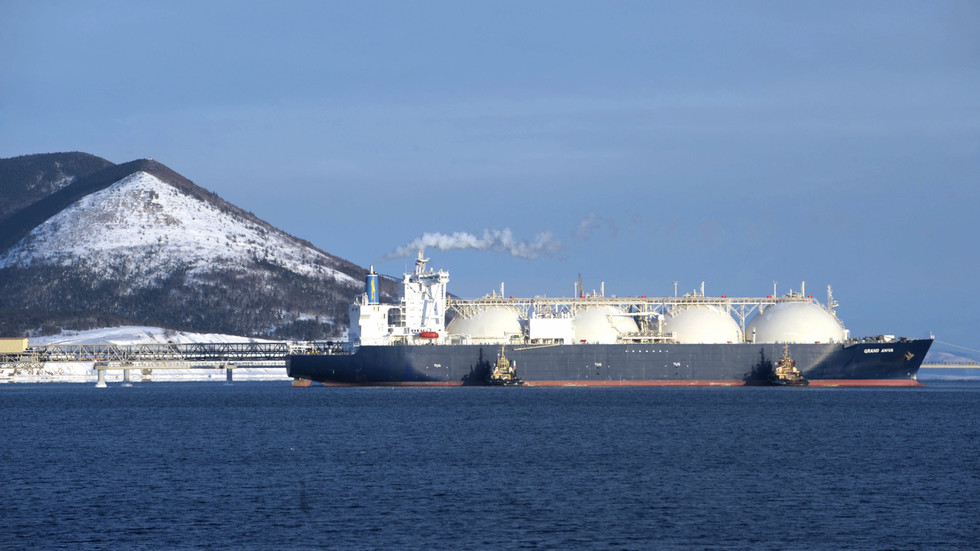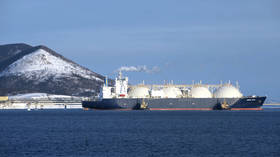
Consumers in Europe are still buying, as well as new partners in Southeast Asia, Nikolay Shulginov says

© Sputnik / Sergey Guneev
Liquefied natural gas (LNG) exports from Russia have been steadily growing since the beginning of the year, with demand on the rise in both Europe and Asia, Energy Minister Nikolay Shulginov has said. Speaking at the Eastern Economic Forum (EEF) that kicked off in Vladivostok on Sunday, the minister confirmed that demand for Russian pipeline natural gas has so far been greater than for LNG.
However, the latter may soon catch up due to LNG exports being “more efficient and flexible compared to pipeline supplies,” he added.
“[LNG exports] are already showing positive dynamics. We are talking about a few percent, but nevertheless. There are buyers of Russian LNG all over the world. And it is not only our new partners in Southeast Asia, but also consumers in Europe,” Shulginov stated.
According to Russia’s statistical agency Rosstat, the country’s LNG production rose 8.1% to 32.5 million tons in 2022. Shulginov noted that Russia’s current LNG output is not enough to meet the growing demand, suggesting that the country needs new gas liquefaction lines as all existing capacities are loaded.
“We have adopted a program to increase LNG production to 100 million tons per year by 2030. I have high hopes for Arctic LNG 2, where the installation of the first production line is already underway. The line will reach its full capacity – about 6.8 million tons – next year. We are also discussing a new LNG plant in Murmansk, with three liquefaction lines of 6.8 million tons each,” the minister said.
According to a recent report by think-tank Global Witness based on Kpler data, China was the largest buyer of Russian LNG in January-July this year, followed by Spain and Belgium. The EU’s purchases of Russian LNG surged by 40% in the reporting period compared to the same period in 2021 and by 1.7% against last year.
READ MORE: EU ban on Russian gas ‘unlikely’ – Brussels
The bloc has so far stopped short of sanctioning Russian gas imports, but introduced a number of measures that limited the inflow of Russian gas supplies and announced plans to scale down imports of Russian energy by 2027. However, based on the current trade flows, Global Witness analysts predict that EU countries will import record volumes of LNG from Russia in 2023.
For more stories on economy & finance visit RT’s business section




